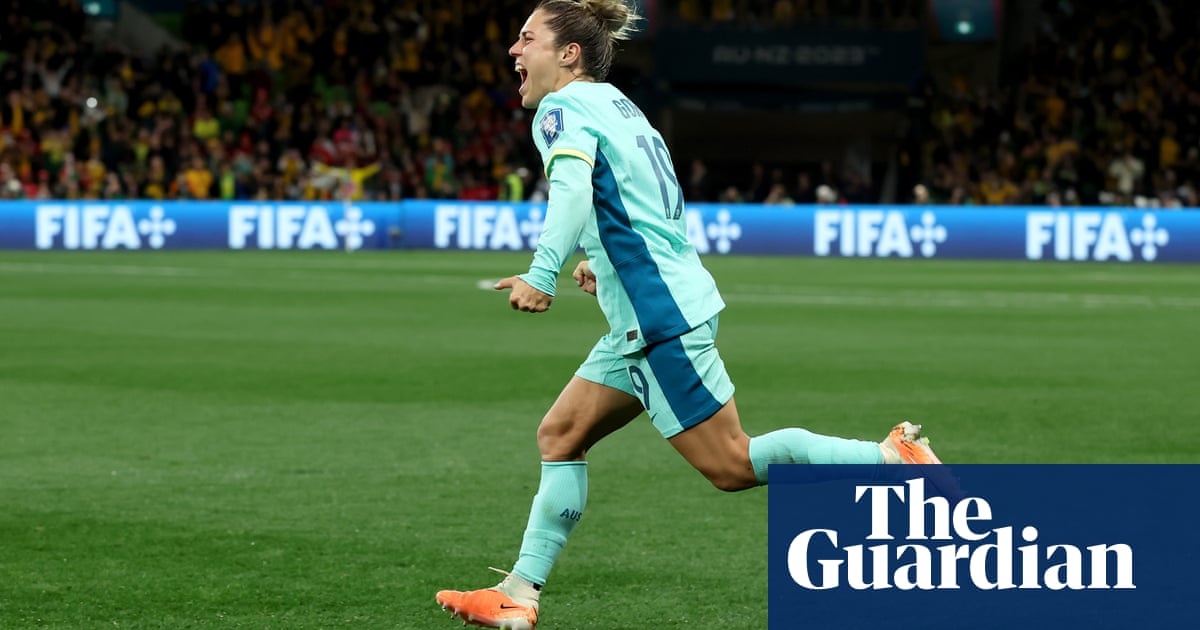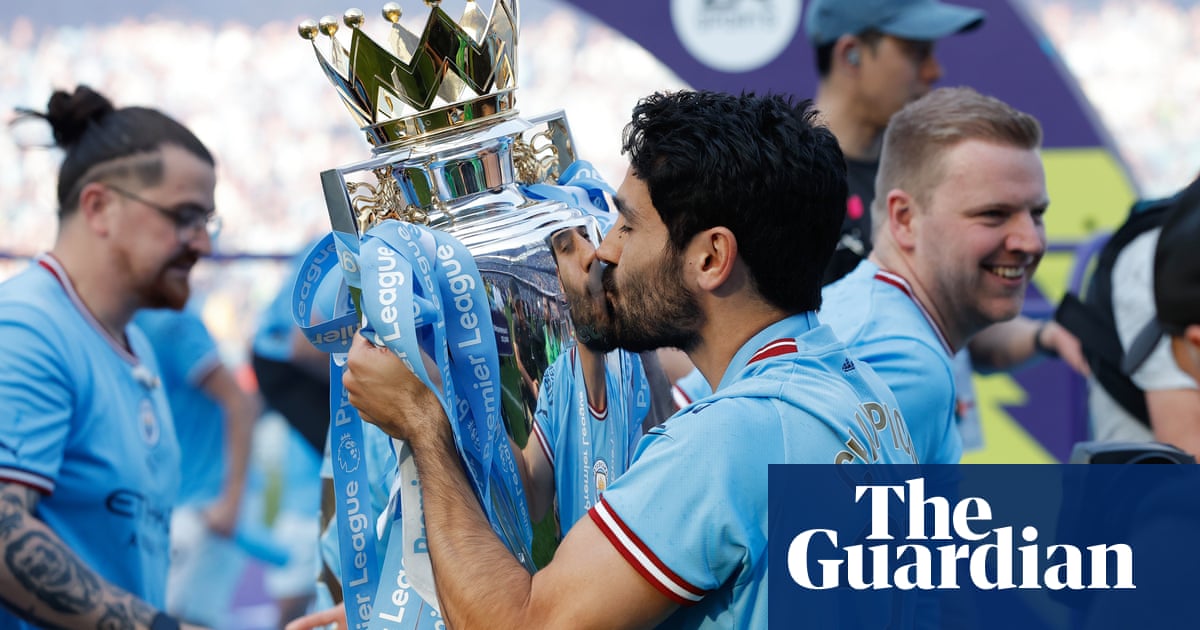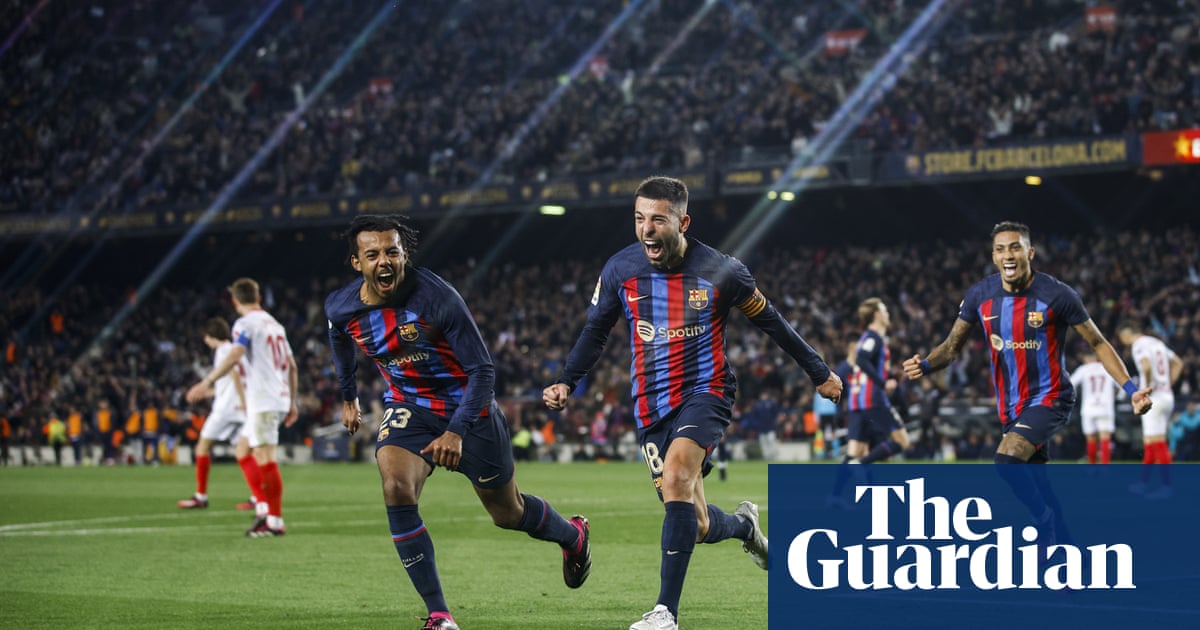
Explain this: Juventus, top of Serie A, having kept clean sheets in 22 of their previous 26 games, horribly defensively exposed by Real Madrid during the first leg of the Champions League quarterfinal, letting in three. And yet on Tuesday night Roma, fourth in Serie A, 23 points behind Juve, hammered Barcelona, who remain unbeaten in La Liga and stand 15 points clear of third-placed Real Madrid. How can this be?
Eusebio Di Francesco, rightly, took credit for his switch to a back three. “I made this choice,” the Roma coach explained, “to create more width, allow more counterattacks and bring speed, but what really changed was the philosophy of the side.” Roma pressed ferociously from the first minute and that unsettled Barça, who are not used to facing sides that take them on and perhaps had made the mistake of thinking the tie was won.
The match-up of shapes felt oddly old-fashioned. By the late 80s the logic was that, all else being equal, 3-5-2 had an advantage over 4-4-2, provided the wing-backs could drive back the opposing wide midfielder, because that left a side three against two in their defensive zone and three against two in midfield while still keeping two forwards up to pressure the opposing center-backs.
That difficulty in controlling midfield was one of the main reasons 4-4-2 fell from favor, although it could still work if the defensive and midfield lines remained very compact, denying the opposition space either by sitting deep or pushing high up the pitch, particularly if, as Barcelona do, the wide midfielders play narrow, tucking in to help with the issue of overmanning in the center. But that requires discipline and energy, and that was where Barça were lacking.
Daniele De Rossi, now 34, operated in a deep-lying playmaker role for Roma. Even protected by Kevin Strootman and Radja Nainggolan, he was somebody Barça had to close down, the obvious fulcrum. Yet just six minutes in he had all the time in the world, Luis Suárez and Messi casually trotting back to halfway, to float a ball over the defensive line for Edin Dzeko to open the scoring.
Gerard Piqué and Samuel Umtiti looked uncomfortable all night against a genuine front two. This was old-school one-on-one defending, not the modern style in which one defender disrupts and the spare man picks up the loose ball. Dzeko, aggressive and relentless, had a superb game.
But by far the biggest issue was Barça’s laxity. As with Juve, the warning signs had been there in the previous round. Chelsea, again and again, especially in the first leg, had got a run at an exposed defensive line as the back of Barcelona’s midfield de-materialized. In part that is to do with the waning powers of Sergio Busquets, whose lack of pace is even more pronounced now than it always was, but mainly it is to do with structure.
The flaws that were exposed by PSG (in the first leg) and Juve last season have not been resolved. This is Barça gone old and, perhaps more worryingly, gone complacent. The seed of celebrity and individualism planted by the formation of the MSN forward line has borne a bitter fruit.
This is the age of football’s decadence, in which teams can dominate their domestic league – Barça are still unbeaten in Spain – so absolutely that they forget what it is to fight. There is now no more statistic more misleading for a top side, not even possession, than goals conceded: Barça have let in 17 in 32 in the league this season, Juve 18 in 32, Manchester City 25 in 33. All of them, when it came to actually defending against a top side, have been found wanting.
The CIES Football Observatory noted recently that 21 percent of all Champions League games finished with a winning margin of three or more goals making it one of the least-balanced competitions in Europe. In its early stages, that is a result of the rich and powerful beating up smaller sides – PSG hammering Celtic, Chelsea hammering Qarabag, Real Madrid hammering Apoel – but that should not be the case from the quarterfinals onward. Liverpool are not richer than City; Roma are not more powerful than Barça.
Yet the trend persists there. In the past eight seasons, 21 of 104 games in the quarterfinals or later have finished with a winning margin of three or more; in the eight seasons before that there were only eight. Of the six games played at that stage so far this season, four have been won by three goals or more.
Nobody can defend. Small teams are overwhelmed but so, too, are bigger sides. In part it is probably to do with law changes; it is much harder now to kill a game by spoiling than it has ever been before. And in part it is to do with the focus on defenders who can play the ball rather than necessarily being able to defend. But mainly it seems an issue of self-indulgence, of big teams gone to fat on the easy pickings of domestic leagues in which their financial might makes them untouchable.
Make the Champions League less predictable, we asked, and suddenly it has become wildly unpredictable, yet still we look on sternly: it has become unpredictable for all the wrong reasons.The Guardian Sport












